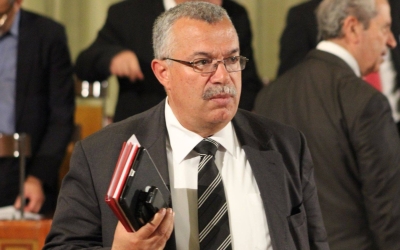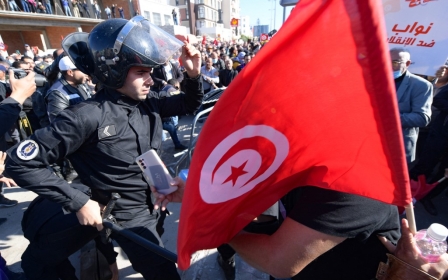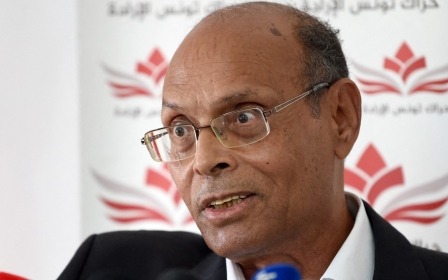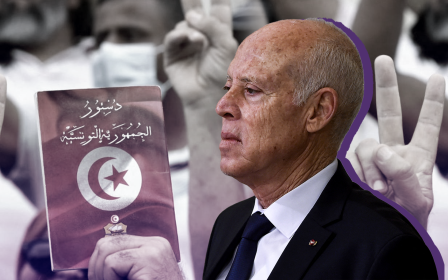Tunisia: Calls to release Ennahda deputy head mount amid reports of his hospitalisation
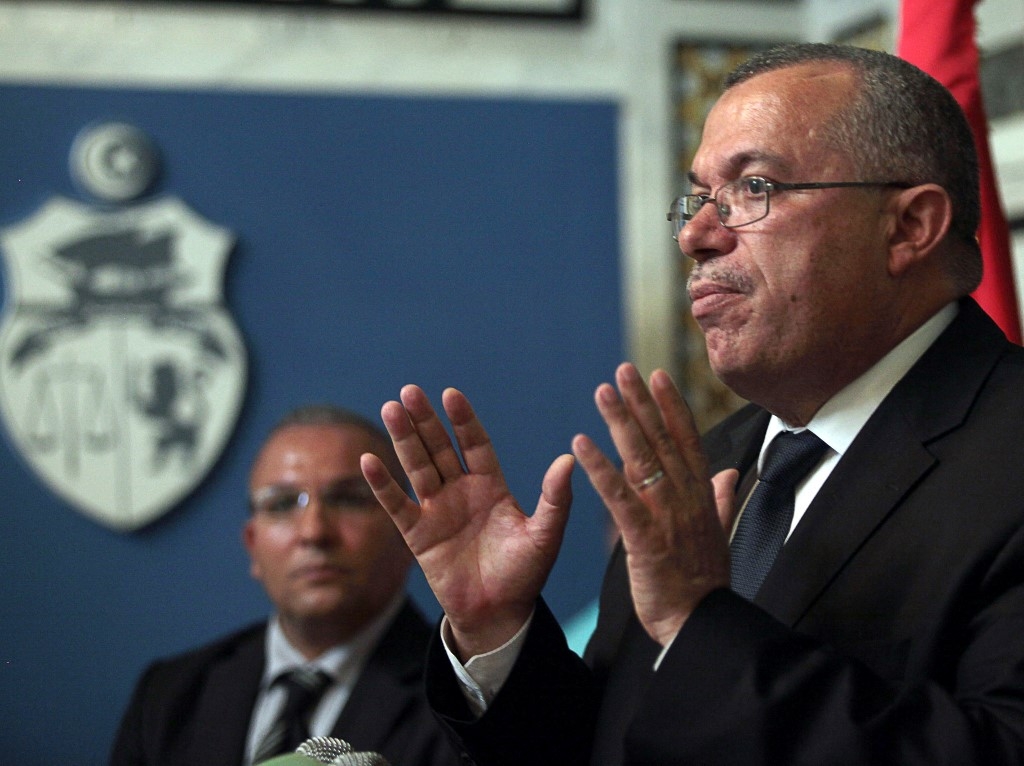
The speaker of Tunisia's suspended parliament has called on President Kais Saied to reveal the whereabouts and condition of Noureddine Bhiri, amid reports that the detained Ennahda party official had been hospitalised.
Rached Ghannouchi made the call in a letter to Kais on Sunday, two days after Bhiri's arrest.
Members of the moderate Islamist party said Bhiri, the party's deputy head, had been in poor health, and that they had received information that he had not been allowed to take his regular medication since his arrest, Reuters reported.
Pictures and videos published by Ennahda members and supporters on Facebook showed people gathering in front of the hospital in Bizerte, saying Bhiri had been taken there.
Bhiri is the first senior Ennahda official to be arrested since July, when President Saied seized control of state powers and suspended parliament, in moves the party and other critics labelled a coup.
The Interior Ministry has not confirmed Bhiri's arrest, saying only that two unnamed people have been placed under house arrest to protect national security.
No officials in Saied's administration were immediately available to comment.
Bhiri, 63, is a lawyer and was serving in the now-suspended parliament. Between 2011-2013 he was minister of justice.
Saied seized power, in a plot leaked to Middle East Eye two months earlier, citing skyrocketing unemployment, rampant corruption and the Covid-19 pandemic as reasons to suspend parliament, sack the prime minister and grant himself prosecutorial powers.
Since Saied's intervention, several senior politicians and business leaders have been detained or prosecuted, many of them on charges of corruption or defamation.
Rights groups have criticised some of those arrests and the use of military courts to hear cases.
Saied has promised to uphold the rights and freedoms won in Tunisia's 2011 revolution, which ushered in democracy and triggered "Arab Spring" uprisings across the region.
Middle East Eye propose une couverture et une analyse indépendantes et incomparables du Moyen-Orient, de l’Afrique du Nord et d’autres régions du monde. Pour en savoir plus sur la reprise de ce contenu et les frais qui s’appliquent, veuillez remplir ce formulaire [en anglais]. Pour en savoir plus sur MEE, cliquez ici [en anglais].


